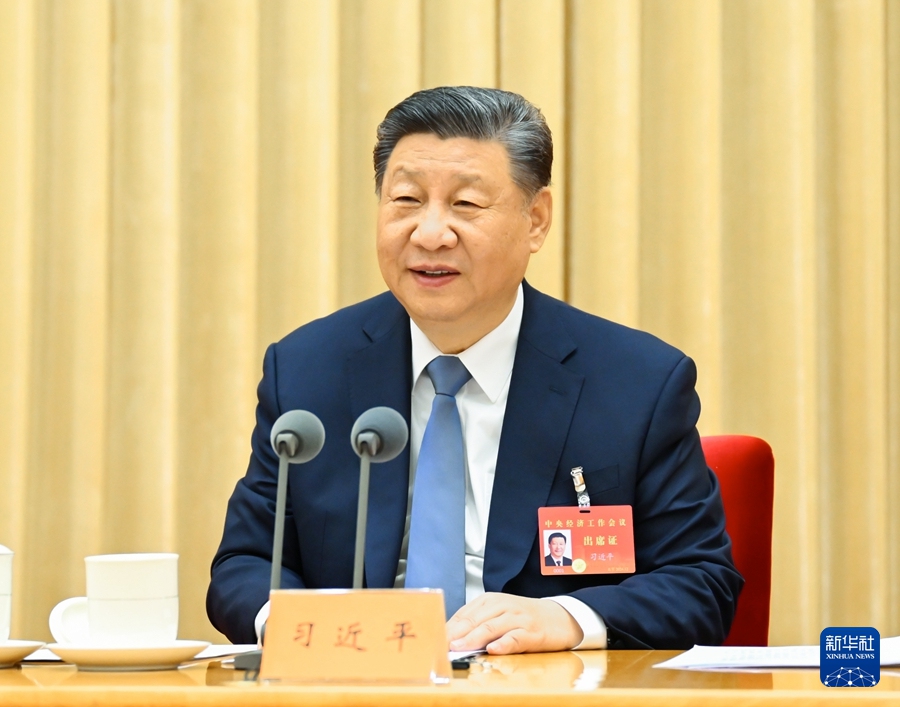Supporting conditions, fundamental trend for sound devt unchanged
The annual Central Economic Work Conference was held in Beijing from Wednesday to Thursday as Chinese leaders decided priorities for the economic work in 2025, according to the Xinhua News Agency. Xi Jinping, general secretary of the Communist Party of China Central Committee, Chinese president and chairman of the Central Military Commission, delivered an important speech at the conference.
In his speech, Xi reviewed the country’s economic work in 2024, analyzed the current economic situation and arranged next year’s economic work.
It was noted at the meeting that the Chinese economy has posted generally stable performance while making progress in 2024, with solid advances made in high-quality development and major annual goals and tasks of economic and social development to be successfully accomplished.
The development journey over the past year has been extraordinary and the achievements have been encouraging, according to the meeting. It noted that a raft of incremental policies deployed by the CPC leadership in late September have effectively boosted social confidence and driven a remarkable rebound in the economy.
While acknowledging the deepened adverse impact brought about by changes in the external environment and many difficulties and challenges still facing the domestic economic operation at present, the meeting pointed out that the supporting conditions and fundamental trend for the Chinese economy’s long-term sound development remain unchanged.
“We must face up to the difficulties, strengthen our confidence, and strive to transform all positive factors into actual achievements in development,” the meeting said.
Clear guidance
“The significance of the Central Economic Work Conference is to set the direction for economic development for the coming year and formulate economic development strategies and major polices,” Su Wei, a professor at the Party School of the CPC Chongqing Municipal Committee, told the Global Times on Thursday.
The conference provides clear guidance for economic work to promote high-quality economic development in 2025 amid complex international and domestic economic situations, Su added.
Cao Heping, an economist from Peking University, noted that one of the major points from the Central Economic Work Conference is the call for a more proactive fiscal policy and moderately loose monetary policy.
“This is a major shift from ‘prudent monetary policy’,” Cao told the Global Times on Thursday, noting that this portends strong policy measures for economic development next year. “Through the support of fiscal and monetary policy, China will promote technological innovation and consumption upgrade, which will not only put China in the globally leading position, but also help optimize economic structure and achieve high-quality development.”
China should set a higher deficit-to-GDP ratio for 2025 and reduce the reserve requirement ratio and interest rates when appropriate, according to the meeting. The meeting pledged to implement a more proactive fiscal policy, with more issuance of ultra-long special treasury bonds and local government special-purpose bonds, and to adopt a moderately loose monetary policy next year.
Huang Bin, deputy director of the Guoyan Institute of Economic Research, also said that the “moderately loose monetary policy” will further solidify support for further economic operations.
“More emphasis will be placed on expanding domestic demand. Especially amid uncertainties in the external environment, boosting domestic demand will be prioritized and efforts on multiple fronts will be taken,” Huang told the Global Times on Thursday.
The Central Economic Work Conference outlined priorities in nine aspects, including vigorously boosting consumption, improving investment efficiency, and expanding domestic demand on all fronts. Another top priority is to use scientific and technological innovation to lead the development of new quality productive forces and build a modern industrial system.
Huang said that by signaling strong policy support for 2025, the conference also helps boost the confidence of market participants. “Under the guidance of the CPC Central Committee, market participants will see the clear signals of economic rebound and will follow the government policy guidance,” he said, noting that increased investment is expected in areas related to new quality productive forces.
Meanwhile, the conference also urged to prioritize promoting high-level opening-up and securing the steady growth of foreign trade and foreign investment, and preventing and addressing risks in key areas to ensure that no systemic risks occur.
Cao said that the policy measures outlined by the Central Economic Work Conference will help the Chinese economy tackle risks and challenges in areas such as real estate, while boosting growth in key areas such as consumption.
Solid foundation
The conference also demonstrated strong confidence in achieving this year’s main goals and tasks in social and economic development, which has been hard-won given the sluggish global economic trend, and offers a solid foundation for steady growth in 2025, according to Su.
China’s GDP grew by 4.8 percent year-on-year in the first three quarters of 2024, and the country has set a target for economic growth of around 5 percent for the year.
Notably, since September, China has rolled out a package of incremental policies, including trade-in programs for consumer goods, supportive real-estate policies, and the issuance of ultra-long special treasury bonds to boost domestic demand and strengthen economic impetus.
Amid the strong policy support, various economic indicators have shown strong results. For instance, retail sales, a measure of consumption, grew by 4.8 percent year-on-year in October, accelerating from the 3.2 percent growth in September, according to latest official data.
“The macro policy adjustments from the CPC Central Committee, along with development in various industries, help stabilized economic growth, laying a solid foundation for future growth,” Su said.
GT




